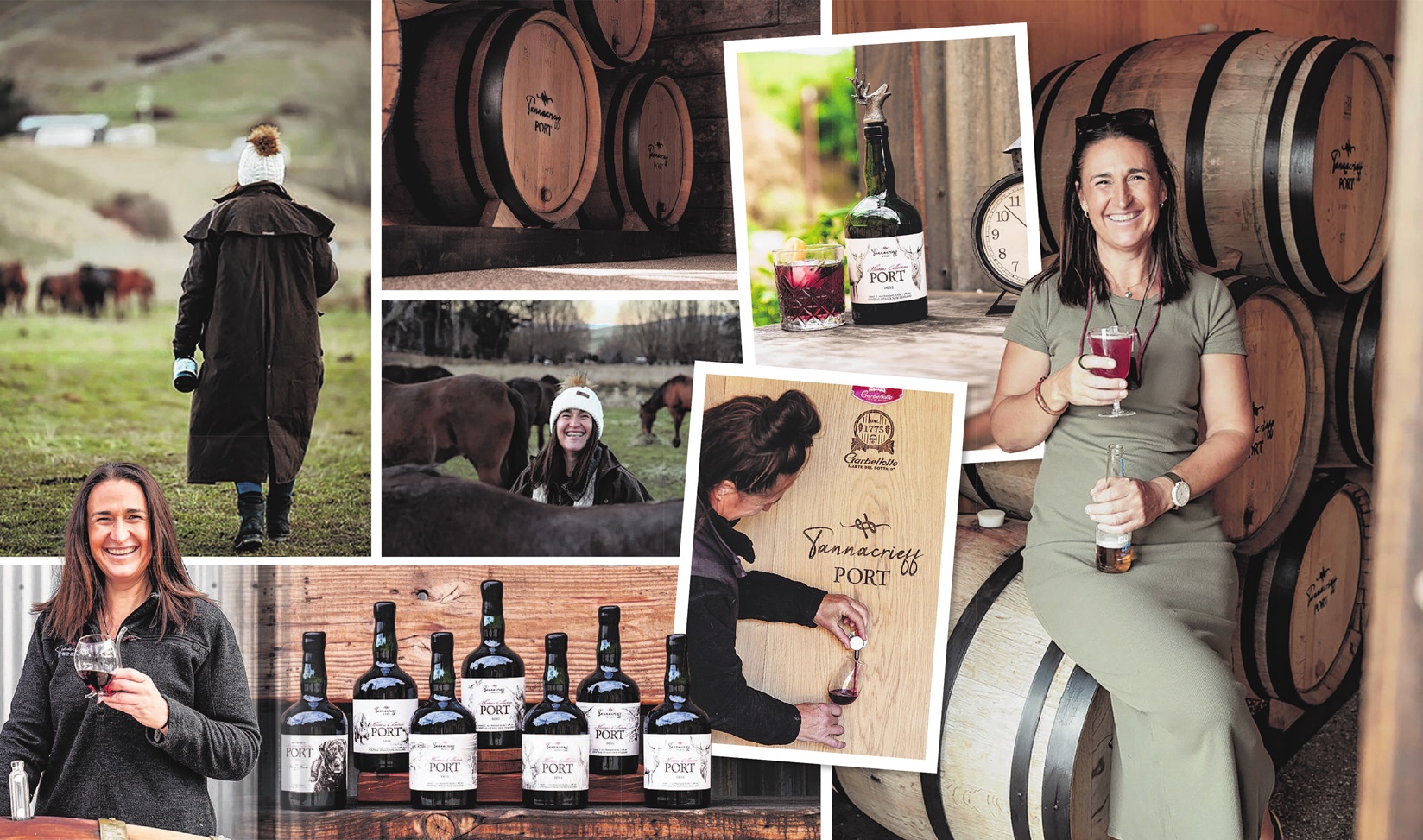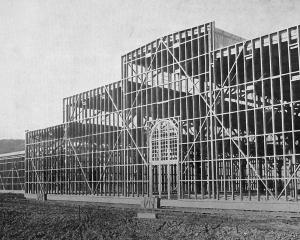
She is the undisputed Queen of Port.
Not only in her adopted home town of Bannockburn but now also nationally as New Zealand’s largest producer of port.
Debra Cruickshank is a force of nature; the one-woman show behind Tannacrieff Wines, producing port with a smile in the heart of Central Otago.
Behind the smile has also been much pain, with an eventual diagnosis of the chronic inflammatory bowel condition Crohn’s disease in 2021, and fears she might have to close her business.
But being accepted for a Singapore-based clinical trial has seen her regain her life and allow her to continue to operate her boutique winery.
An undisputed work ethic and life skills had its roots in her childhood on a farm in the Catlins where Ms Cruickshank, 45, would help her father with lambing, milk the pet cow before school, make hay huts for pregnant pigs and then stay up all night to watch the sows deliver their piglets.
The farm was named Tannacrieff, after the ancestral Dickie farm in Ayrshire, Scotland — Ms Cruickshank’s maternal great-grandmother was a Dickie — and several members of the Dickie family emigrated to the lower South Island in the early 1860s.
In 2000, Ms Cruickshank caught the eye of the winemaker at Akarua Winery in Bannockburn and started her winemaking journey, working from the bottom up initially in the vineyard and then into the winery.
That culminated in formal recognition from the Eastern Institute of Technology and Massey University. She spent eight years at Akarua and, after a year in Western Australia, she returned home to make wine for a very small winery in Cromwell.
Never particularly keen on working for others, the time finally came to open her own boutique winery. She started a small contract winemaking facility in March, 2012, which was the start of DC Wines Ltd, and later moved to Bannockburn where she also produced her own wines.
A pivotal moment came in 2017 when she won the supreme award in the Rural Women New Zealand Enterprising Rural Women Awards.
It thrust her into the spotlight and the resulting publicity ensured people knew exactly what she did — "not just a chick who makes wine for everyone".
It was also a turning point for her to concentrate on her port and slowly phase out the winemaking, where she was making up to 30-odd different wines for small-batch wineries. People started to know her for her port and yet she did not have enough time to make it.
It was January, 2018, when Ms Cruickshank got her first "painful tummy" and knew something was wrong. Initially, having been recently to Samoa, doctors thought it was parasites.
Both her parents had bowel cancer, yet she said it took three years of pleading with doctors for a colonoscopy.
"I knew something was wrong. My motto is always the squeaky wheel gets the grease."
By the time she was diagnosed with Crohn’s disease three years later, it was severe.
"The pain and fatigue and brain fog really did stop me being a normal person," she said.
Around the same time, she needed back surgery and much of 2022 was spent in bed. Through the public health system, she was unable to access funded medication for Crohn’s disease.
In September that year, she was accepted for a clinical trial and "instantly felt like a new person".
"I had my life back."
Since then, she has travelled to Dunedin every two months for treatment and she has a colonoscopy every year.
Ms Cruickshank knew things had to change — stress was the main trigger — and the decision was made to concentrate on port, keeping it manageable and what her health would allow her to do.
Tanacrieff specialised in small-batch, handcrafted ruby, white and tawny ports which had gone from "just a little hustle on the side" to now being the focus.
She recognised her passion was making port, leaving winemaking to others.
"There’s some amazing winemakers out there making wine, so why not stick to a niche market that’s doing really well?"
Port had shrugged off its old-fashioned image and had become a very popular drink, particularly with young people.
It was also versatile and could be used in cocktails.
The process of making it was also more fun than making wine and it was easier on her body.
Her port was stocked throughout the country, and often sold through word of mouth, and her aim was to continue to grow the domestic market.
"I don’t want to go overseas, there’s enough people here. I want to keep it big enough to handle," she said.
While there had been offers of investment in Tanacrieff Wines, Ms Cruickshank preferred to keep total control, saying she had worked too hard to give it away.
She particularly enjoyed having a stall at the likes of Wānaka A&P Show and catching up with customers and seeing people enjoy her products.
She also did tastings by appointment and enjoyed showing people what she did. Even horses were welcome at her rustic base while their riders sampled a drop. That was the beauty of Bannockburn and open spaces, she said.
A rose port was scheduled for release in October and, by the interest shown already in it, she expected it would sell out quickly.
During the winter — her quieter time — Ms Cruickshank enjoyed travelling and she had been to Porto, Portugal, from which port wine was named.
Port was one of Portugal’s most famous exports and it was an "eye-opener" to see the home of port and also the quantities produced, making her contribution just a drop in the ocean.











